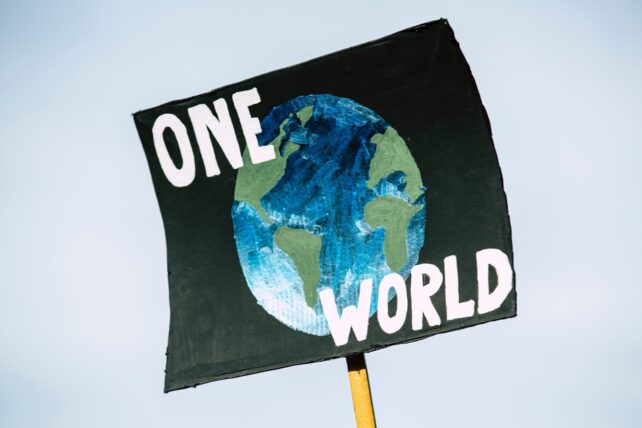
St. Michael, Barbados — Over 50 Caribbean-based civil society organisations, led by the Caribbean Policy Development Centre (CPDC), wrote to US President Biden and US Treasury Secretary Yellen today, urging their support for Caribbean countries facing the twin challenges of debt and climate crises. The groups are urging the Biden administration to back a new major allocation of Special Drawing Rights (SDRs) from the International Monetary Fund (IMF), debt relief, an end to IMF surcharges, and loss and damage funding to assist countries in the region during a period of a weakened global economy and increasing prevalence of climate-related disasters.
The groups include the Barbados Association of Non-Governmental Organisations, the Caribbean Natural Resources Institute, Civil Society Bahamas, the Dominican Republic-based Confederación Nacional de Unidad Sindical (CNUS), Haiti’s Confédération des Travailleurs et Travailleuses des Secteurs Public et Privé, the Dominica National Council of Women, the Grenada National Organisation of Women, the Jamaica Environment Trust, Jamaicans For Justice, the National Workers Union of Saint Lucia, and Jubilee Caribbean, among many others.
“The Caribbean is one of the most indebted regions in the world,” the groups write. “Total debt has risen to 74% of the region’s GDP, with debt in countries including Barbados, Suriname, Belize and Jamaica surpassing 100% of GDP,” which means, “Latin America and the Caribbean collectively spend almost 10 times more on debt payments than on healthcare, and 30 times more than on climate adaptation.”
The letter goes on to note that Caribbean countries are “particularly vulnerable to tropical storms” and “face some of the greatest burdens of [climate change’s] impacts” despite being some of the least responsible for the emissions causing the climate crisis. These storms “will continue to increase in intensity and frequency due to climate change; the cost of these disasters will increase in tandem. Caribbean countries have lost an estimated $30 billion in GDP
due to extreme weather events between 2000 and 2014,” the letter notes.
The letter explains how the debt and climate crises are intertwined and exacerbate one another:
“These two great challenges — soaring debt burdens and climate change — are a recipe for disaster in our region. With desperately needed resources siphoned off to service ballooning debts, little remains to prepare our nations for the continuous threat of climate catastrophes.”
The letter also notes that climate disasters and economic insecurity are among factors driving migration from the Caribbean and elsewhere and that debt crises lead to social unrest, among other reasons that the US should support initiatives to end the debt crisis and help countries better prepare for, and respond to, climate-related disasters and challenges.
A major new issuance of SDRs would quickly provide much-needed support for countries in the region. The letter describes how some Caribbean nations quickly used their SDRs to fight COVID, boost infrastructure, and pay off IMF debt following a 2021 allocation during the pandemic.
As a regional civil society organisation mobilising regional positions on the issue, the Caribbean Policy Development Centre notes that ending IMF surcharges would assist countries more heavily indebted to the Fund, like Barbados, that are forced to pay millions to the Fund in unnecessary and counterproductive surcharges. Other Caribbean countries are also at risk of having to soon pay such fees to the IMF if they become more reliant on the Fund.
According to Mr. Richard Jones, Officer in Charge of CPDC, “there is a need for major global reform to end discriminatory policies that work against the Caribbean region as it struggles to develop sustainably and build resilience.”
Additionally, a loss and damage fund has long been a priority for Caribbean countries, and while the US has voiced support for the fund, the fund remains “an empty bucket,” something that could change with US leadership as well as contributions.
Beyond the Caribbean, there is much common recognition of these historic challenges. Ahead of the G20 finance ministers’ meeting in July, IMF Managing Director Kristalina Georgieva wrote: “Agile multilateral support is vital to tackle common challenges posed by debt vulnerabilities, climate change, and limited concessional financing—especially for countries hit by shocks not of their making.”
About Us:
The Caribbean Policy Development Centre was established in 1991, by Caribbean NGOs to work towards policy change in the interest of Caribbean peoples. CPDC’s mandate is to help Caribbean NGOs to:
• Understand how policies affecting Caribbean people are made,
• Share information about policies and decision-making processes,
• Work to influence and bring positive change to the development process, and
• Lobby for policies which are in the interest of Caribbean people.
The CPDC is a regional network, whose membership comprises other regional development organizations, national networks, umbrella organisations, national agencies, and individuals. Since its inception, the CPDC has undertaken research, analysis, advocacy and lobbying and has formulated policy positions on a variety of issues relevant to Caribbean society. With a history of lobbying and an impressive portfolio of projects and programmes implemented on
behalf of Caribbean peoples, CPDC has been recognised as an important social partner in the development of the region.


